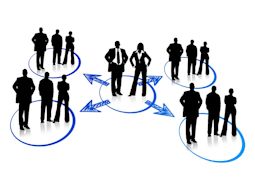What are the costs for creating a CRM?
In a world where competition is fierce and consumers are constantly bombarded with advertising, understanding and building lasting relationships with customers is crucial. A customer relationship management (CRM) system is an indispensable tool for achieving this. But how much does it cost to set up such a system? Is it accessible to all companies? This article aims to shed some light on these questions.
Back to CRM
What is CRM? CRM stands for Customer Relationship Management. It's a strategy for building customer loyalty by proposing a purchasing pathway in which a company uses tools and techniques to capture the attention of potential customers. The purpose of CRM is to find, develop and retain customers. It also enables you to automate the marketing process to save time, track customer behavior, and propose marketing choices and processes based on figures or behaviors identified by the CRM.
What is a CRM?
A CRM, or customer relationship management system, is a tool that helps companies manage and analyze interactions with current and potential customers. It's a crucial investment in understanding consumer needs and behaviors.
Why invest in CRM?
Investing in a CRM enables a better understanding of customers, increased loyalty, and more effective marketing campaigns. It's an effective way to stand out in a saturated market.
The different types of CRM
There are several types of CRM, each with its own characteristics and costs. CRMs can be cloud-based, on-premise, or hybrid. Choosing the right type is essential to maximize return on investment.
The costs
Initial costs
Initial CRM implementation costs vary according to the complexity of the system chosen. They include software purchase, installation and customization. For smaller companies, more affordable solutions are available.
Maintenance and update costs
Regular maintenance and upgrades are essential to keep CRM running smoothly and efficiently. These costs can be significant, but they are necessary to ensure the tool's longevity.
Training and support
1. Initial employee training
Cost of trainers: Depending on whether you choose internal or external trainers, costs can vary. External trainers are generally more expensive, but often bring specialized expertise.
Materials: Manuals, online guides, videos and other support materials represent a cost not to be overlooked.
Time: The time employees spend learning is an indirect cost. During this time, they don't contribute to their normal activities, which can affect productivity.
2. Ongoing training and upgrades
Refresher Sessions: Regular training sessions to keep employees' skills up to date with new CRM functionalities.
Software upgrades: Upgrades may require additional training sessions, especially if they bring significant changes.
3. Costs associated with customization
Company-specific training: If your CRM is highly customized to meet your company's specific needs, this may require a more specialized structure.
Development of customized training materials: Creating training materials specific to your CRM configuration may incur additional costs.
4. Technology and infrastructure costs
E-Learning platforms: The use of e-learning platforms or software may entail subscription or license fees.
Hardware: Additional costs may be incurred for hardware required for training, such as computers or tablets for employees.
5. Competency assessment and follow-up
Assessment tools: Tools to evaluate the effectiveness of training and the level of competence of employees in using the CRM.
Ongoing monitoring: The need to track progress and gaps to ensure effective use of CRM within the company.
Understanding in detail the training costs associated with implementing a CRM is essential to effectively planning your budget and ensuring a smooth transition to using the new system. This includes not only direct costs, but also indirect and long-term costs associated with maintaining skills and adapting to system updates.
Long-term benefits
1. Improved customer relations
Personalized service: CRM enables the storage of detailed customer information, helping to personalize interaction and improve the customer experience.
Rapid response to customer requests: With rapid access to customer data, companies can respond more effectively to queries, increasing customer satisfaction.
2. Increased operational efficiency
Task automation: CRM automates many routine tasks, allowing staff to concentrate on more strategic activities.
Information centralization: Centralized access to customer information facilitates data sharing between departments, improving coordination and efficiency.
3. Increased Sales and Marketing
Better lead management: CRM helps to track and manage leads more effectively, increasing the chances of conversion.
Targeted marketing campaigns: CRM data can be used to create more targeted and personalized marketing campaigns, increasing return on investment.
4. Improved Analysis and Reporting
Data-driven decision-making: CRM offers advanced analysis tools that help make decisions based on real, up-to-date data.
Customizable reporting: CRM-generated reports can be customized to meet specific business needs, providing valuable insights for corporate strategy.
5. Customer loyalty
Customer Interaction Tracking: CRM helps to track all customer interactions, helping to build lasting relationships and customer loyalty.
Complaints management: The CRM system facilitates the management of complaints and returns, helping to maintain a good relationship with customers even when problems arise.
6. Adaptability and scalability
Scalability: CRM systems are designed to adapt to a company's growth, supporting its long-term development.
Adaptability to market changes: CRM enables rapid reactivity to market changes, thanks to a better understanding of customer trends.
Investing in a CRM system offers a multitude of long-term benefits, from improved customer relations to increased revenues and operational efficiency. These benefits not only contribute to the company's long-term growth and success, but also to its ability to adapt and evolve in a constantly changing business environment.
CRM: a strategic investment
Investing in a CRM is not just an expense, it's a long-term corporate strategy. It enables you to position your company competitively in the marketplace.
Here are a few points to bear in mind when purchasing CRM software:
Software cost
Installation and deployment costs;
Cost of monitoring and improving performance.
+ a cost for a CRM consultant if you need help finding the right software for your business.
An overview of CRM installation costs
For installation of the software, expect a budget of up to $450, depending on whether the installation is done by you or by the supplier. The number of users who will have access to the database can also vary the cost. Then, add between $300 and $3,450 depending on the types of features you need. For example, you can choose the full range of functionalities, or just a module focused on customer service and follow-up, or on sales opportunities only. Then there are the optional functions. For example, to synchronize your e-mail or integrate Google Maps. Prices range from $300 to $1,200 for each option.
Importing your contacts or prospects costs $450 for each category, and training your employees between $450 and $900 each. Finally, for technical support, the service is based on an hourly rate or on the agreement you have with the supplier. In short, plan on a starting budget of between $5,000 and $16,000, depending on features and needs, for an average company.
Package or subscription plan?
A variety of products are available, depending on business type, market segment and budget. Most suppliers offer two price ranges, either a free version or a paid version.
Here's an overall summary of prices on the market. Please take into account such factors as language, number of users, hosting and functionality when making your purchase. Some software offers an interface and technical support in English only. An interesting point to consider if you're looking for support in French. Prices are per license, per server or per user.
Subscription CRM
Basic prices start from $12 to $350 per user per month with basic functionality. Some software is specialized for small or medium-sized businesses. Features differ from company to company. To help you, consider the number of contacts included, the number of possible e-mails sent and the number of users when choosing your subscription. There's also the option of a perpetual license with a single payment for each user starting at $400. Server-based packages are available at $9,995 per month for private label or for a customized cloud-hosted CRM with a one-year contract.
The right software in the right place
Much of the software is offered in English only, and so is support. Companies offer a 14-day or 30-day trial before choosing the system. This is an attractive option for anyone wishing to test the software before making a major investment.
Since there are so many CRM sites out there, you can get in touch with a consultant who can help you decide which software you need. Alternatively, you can always visit the various sites to get an idea.
Comparison of CRM features
1. Zoho CRM
Customization: Offers great flexibility in customizing workflows, reports and dashboards.
Sales Automation: Features advanced sales process automation capabilities.
Integration: Compatible with a variety of third-party applications and platforms.
Analytics: Provides detailed analysis and reporting, including customizable dashboards.
Pricing: Offers multiple pricing levels, making CRM accessible to small businesses as well as large enterprises.
2. HubSpot
Ease of use: Renowned for its intuitive, easy-to-use user interface.
Inbound Marketing: Excellent integration of marketing features, including content marketing and SEO.
Lead Management: Robust tools for lead management and follow-up.
Marketing Automation: Strong marketing automation capabilities for e-mail campaigns and customer journeys.
Pricing: Offers a free basic plan with limited functionality, and paid plans for more advanced features.
3. Salesforce
Scalability: Extremely scalable, suitable for large companies with complex needs.
Extensive Ecosystem: Wide range of additional features and applications available through the AppExchange.
Advanced customization: High level of customization and configuration. Analytics and AI: Integrates advanced analytics and artificial intelligence features with Einstein AI.
Pricing: Generally more expensive, targeting medium and large enterprises.
4. Pipedrive
User-friendly interface: Highly visual user interface, focused on simplicity and efficiency.
Sales pipeline management: Excellent for visualizing and managing sales pipelines.
Integration and Customization: Good integration with other tools and easy customization of functionality.
Reporting and Analysis: Provides easy-to-understand, customizable sales reports.
Affordable pricing: Competitive pricing, ideal for SMEs.
Each CRM has its own unique strengths. Zoho CRM stands out for personalization and value for money. HubSpot shines in inbound marketing and ease of use. Salesforce is the ideal choice for large organizations requiring a highly customizable and scalable solution. Pipedrive, meanwhile, is perfect for small businesses looking for a simple, effective solution for managing sales pipelines. The choice will depend on specific needs, company size and available budget.
Free, but...
You can also find free software that offers you basic tools such as project management, invoicing and other functionalities, but they are limited. If you want more functionality, you can pay to add to or upgrade your plan. Some offer free plans for a limited time, for example, for 1 year or a 15 or 30-day trial.
Do you have a CRM project in mind?
Contact us to be put in touch with certified suppliers!



